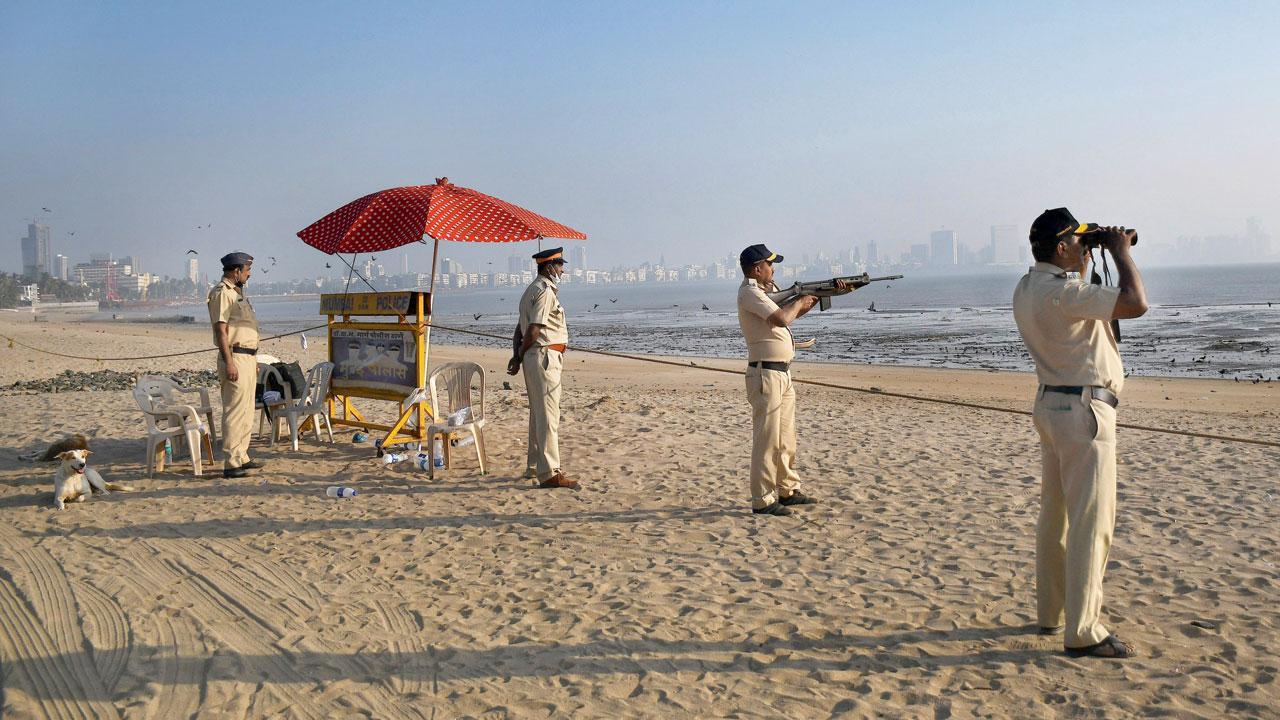Home / Mumbai / Mumbai News / Article /
Indian Navy to conduct two-day mega exercise for coastal security
Updated On: 15 November, 2022 08:09 AM IST | Mumbai | Faizan Khan
With Sea Vigil-22, the Indian Navy aims to validate the efficacy of coastal defence organisations against threats emerging from the sea

The exercise Sagar Kavach has been conducted every year in each state along the sea. Mumbai police are seen participating in it at Girgaon chowpatty in 2021. File pic
Threats from sea routes have always been a major cause of concern for Indian security agencies. Hence the Indian Navy will conduct a sea watch today and tomorrow, called Sea Vigil-22, and 15 agencies will participate in the event. The exercise will cover the country`s 7,516 km-long coastline and exclusive economic zone to check preparedness of various agencies to deal with any eventualities and bolster overall maritime security.
A major security lapse observed recently after the 26/11 Mumbai terror attacks in 2008 was a foreign yacht found near Harihareshwar beach in Raigad, this year in August, which had an AK-47 and ammunition on board. However, later the agencies revealed that the boat had sent a distress call in June, the crew members were saved, but the vessel drifted due to bad weather and reached the Raigad coast from Oman.



